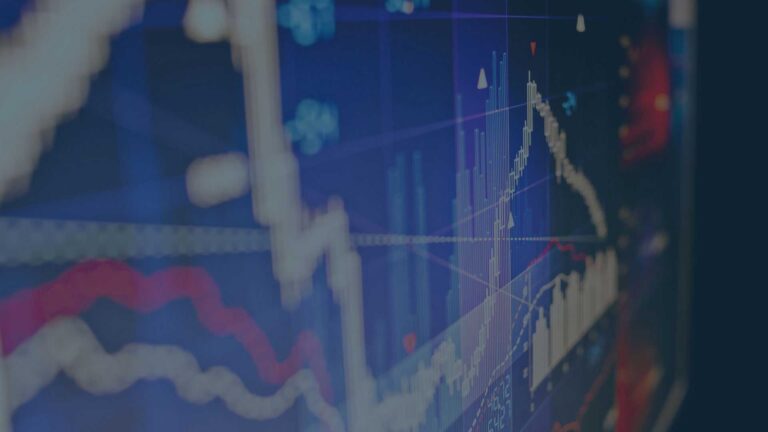

A Changing of the Guard at the FOMC
Abstract
Jerome Powell is the new Chair of the Federal Open Market Committee (FOMC) following Janet Yellen’s retirement from the Fed. In the near-term, Powell is likely to continue on the projected path of gradual interest rate hikes while also focusing on transparency and deregulation. However, as his background is not in economics, he will likely be more reliant on staff and fellow FOMC members in making decisions on monetary policy than his predecessors. Over the longer-term, questions remain about how long the tightening cycle will last, as well as what his response would be in a downturn.
Introduction
The top brass at the Federal Open Market Committee is undergoing a major overhaul. Over the past year, three members of the Federal Reserve’s Board of Governors, along with several Regional Bank Presidents, have either left the Federal Reserve or have announced their intention to do so in the near future. The most noteworthy of these is Chair Janet Yellen, who recently stepped down from the Board after President Trump chose not to re-nominate her as Chair.
In the place of Yellen, Trump nominated Jerome Powell, a lawyer who has served on the Board of Governors since 2012. Powell was recently confirmed by the Senate and is now set to Chair the FOMC starting in February. Given the important role the Chair plays in setting the course of Fed policy, it makes sense to take stock of what changes may occur as we transition to a Powell-led Fed.
Powell’s Background
For some perspective, Jerome Powell’s background is not in economics, but rather law and finance. He spent four decades working in private equity and banking and was relatively unknown in political circles before a stint in consulting work on the debt ceiling negotiations in 2011. The following year, President Obama unceremoniously nominated him to the Board of Governors along with Harvard economics professor Jeremy Stein. For his first few years, he worked on mainly run-of-the-mill tasks, such as payments processing, and bided his time before eventually moving into more prominent roles.
Despite his experience at the Fed, Powell’s background is highly unusual for a Fed Chair. The last Chair without formal training in economics was G. William Miller, who served only one year from 1978-1979. Miller was an unmitigated disaster as chair and his tenure was characterized by excessive levels of inflation and a collapse in the dollar. Following Miller’s “demotion” to U.S. Treasury Secretary, Paul Volcker became the first of four consecutive Fed Chairs to have a background in economics.
Powell’s Policy Views
While Powell may not fit the profile of a typical central banker, he is held in ample regard both personally and professionally. He is widely viewed as a “continuity candidate,” evidenced by the muted reaction from markets to his nomination. Powell’s exact policy views are somewhat difficult to gauge, given his lack of public comments and research into the subject of monetary policy. However, in his confirmation hearing he expressed his intention to “normalize rates” in a gradual manner. This essentially echoes Janet Yellen’s comments on the foreseeable path for monetary policy and comes in stark contrast to statements by other candidates President Trump was considering for the job whom held generally more hawkish stances.
Powell’s Senate testimony does reveal some views that potentially diverge from those of the prior Chair’s. Yellen’s background was as a labor economist. She famously worked with her husband George Acklerlof on researching optimal wage structures, and perhaps as a result she was a strong adherer to the Phillips Curve model of inflation. That model suggests that a tight labor market causes firms to compete for workers which causes wages to rise and which in turn bleeds over into higher prices. In her confirmation hearing as Vice-Chair in 2010, Yellen asserted that the “Phillips curve model… has solid theoretical and empirical support.” Throughout her tenure, she often referenced the model as the primary rationale for removing policy accommodation, fearing that an overly tight labor market might cause the economy to overheat.
Recently, though, many economists have openly questioned whether the relationship between unemployment and inflation is breaking down. Powell seems somewhat sympathetic to these arguments. In a speech concerning the state of the labor market, Powell observed that the correlation between the two variables has “weakened substantially” of late.
DOWNLOAD FULL REPORT
Our research is for personal, non-commercial use only. You may not copy, distribute or modify content contained on this Website without prior written authorization from Capital Advisors Group. By viewing this Website and/or downloading its content, you agree to the Terms of Use.
Please click here for disclosure information: Our research is for personal, non-commercial use only. You may not copy, distribute or modify content contained on this Website without prior written authorization from Capital Advisors Group. By viewing this Website and/or downloading its content, you agree to the Terms of Use & Privacy Policy.
